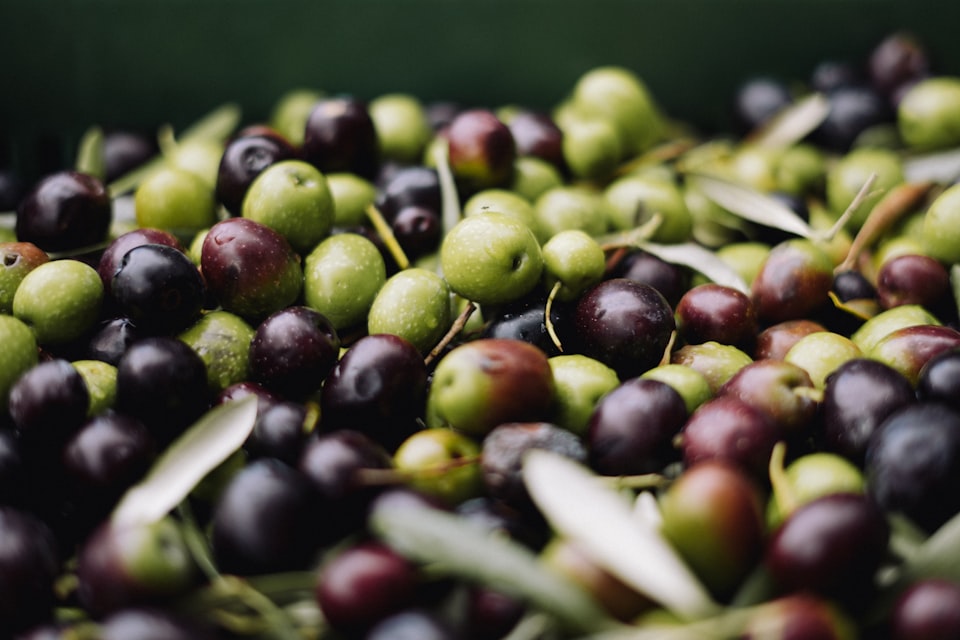Frost I: Chill
Finding time and space for ourselves in this busy month.

Good morning. Today begins the first décade of Frimaire, Year CCXXXII. It's the month of frost. Our theme this time is chill.
Rampion on primidi
Turnip on duodi
Chicory on tridi
Medlar on quartidi
Pig on quintidi
Corn salad on sextidi
Cauliflower on septidi
Honey on octidi
Juniper on nonidi
Pickaxe on décadi
Frimaire inaugurates a very fraught season in the United States, as we kick things off with the stresses of a big meal with family, follow it immediately with forced cultural shopping with more than a whiff of desperation attached, and run ourselves through the gauntlet of forced "holiday" cheer (that thin veneer of multicultural acknowledgement still just a rolling pin trying to smooth every type of religious dough into the shape of a Christmas cookie) when the month pulls up abruptly from the climax of gift giving and just leaves us strung out and broke. So, you know, it's a good time to chill.
The use of 'chill' to mean relax only appeared about 40 years ago, with the earliest written reference of "chill out" only dating to CLXXXVII (1979) and "chill" being used to mean hang out together appearing in CXCIII (1985). Since then, it has taken on a life of its own as a verb, growing steadily in the sense of being calm and not doing anything in particular to the point that search engines treat that as a primary meaning in isolation. (Let's not gander at "chillax," a word better said with irony than written in sincerity.)
It's a strange word to use for this purpose. I suppose a scientist could see the metaphor, as lowering the temperature of a thing is, by definition, causing it to move less and its atoms to be less excited. But the experience of being chilled is anything but comfortable. The skin gets goose bumps, the body begins to shiver and shake, and you get the urge to stomp your feet and walk somewhere, anywhere, to escape the cold. Saying "let's chill" to imply sitting on a couch is imagining our lives as a piece of meat in a fridge – static, unused, forgotten, stored for future use.
Then again, I could go through the same stupid exercise with the phrase 'chill' replaced. "Hang out" is meant to imply a lack of vigorous movement or much ado, and yet the act of hanging from something is kind of an emergency. You can't maintain that for long before you drop. The fact that "hanging out" has such an indefinite timeline is the opposite of what actually dangling by your arms would feel like (or worse, swinging upside-down as from monkey bars, the blood rushing to your head).
I suppose between literal chilling and literal hanging, I'd chose the former. Maybe we are moving in the right direction after all.
In the days before cable, when television broadcasts had to be local, each market had a problem. The network programming took care of the weekdays just fine, and sports could occupy airtime on the weekends, but what about those late night slots on Saturday and Sunday when Johnny Carson was relaxing at home and the games were all wrapped up? Enter the locally hosted horror movie of the week.
Every market had at least one station that turned to cheaply licensed old horror movies as an ideal time killer for those late night slots when they could dump the ads that fetched rock-bottom prices. What was remarkable was that, instead of just showing the movie with interruptions, nearly all of them decided a host was necessary to ease people in and out of the ad breaks. I suppose the idea was that the hosts would add a bit of brand loyalty, because the casting calls brought out some of the strangest characters to ever get on living room screens outside of the equally bizarre weekend kiddie clown shows that ran in the morning.
Here's the intro for New York's classic version of Chiller Theater (because they were almost all called some version of Chiller Theater):
Pittsburgh's beloved Chilly Billy took a very straightforward approach, announcing the movies in a prom tux with the panache of a sports announcer describing the rules of an obscure Olympic sport:
One of the earliest hosts, who provided a template for later celebrities such as Elvira, was Vampira out in Los Angeles:
Chicago's edition was a decidedly wackier take with Svengoolie (who was followed by Son of Svengoolie later):
Philadelphia had more of a stand-up comedian vibe by way of Lurch (many of these hosts seemed to be copping an Addams Family character's vibe), a stentorian fellow by the name of Zacherley:
And, of course, we can't forget SCTV's parody of all these characters, Count Floyd of Monster Chiller Horror Theater:
If you've ever wondered how the Cheesecake Factory has a hundred-page menu with every conceivable dish under the sun without having a kitchen staff the size of your state's National Guard, the answer is blast chillers. Every restaurant has these devices for almost-freezing prepared foods so that not everything has to be made from scratch. It's not just the chains and diners, either. High-end restaurants use them, too, but don't worry, that doesn't mean your Michelin star dining experience consists of frozen food.
Soups, blanched ingredients, doughs, and desserts are all either time-intensive or time-sensitive dishes that can't sit around at anything resembling room temperature without developing dangerous bacteria. Refrigeration helps, but even at refrigerator temperatures, bacteria and mold can form, just more slowly. (You've cleaned our your fridge; you know this.) But freezing food creates an ice problem, where frozen water crystals on the surface or inside the food turn into soggy water pockets later, diluting the flavor and making that tell-tale blandness that we associated with microwave dinners.
Blast chillers get right into the sweet spot between refrigerating and freezing. These appliances – which you shouldn't add to your Santa list because they are far too expensive and bulky for anything but a commercial or restaurant kitchen – act like reverse ovens. Convection ovens heat food by blowing hot air around the dish. Blast chillers do the opposite, using a gentle stream of super-cold air and basic thermodynamics to rapidly cool cooked food without creating large ice crystals.
The design of the appliance is such that this can be done in under two hours, far faster than any bacteria can form. The temperature of the food is held at just a few measly degrees above freezing, where some tiny ice crystals may form but nothing that will create flavor problems. Food properly refrigerated after being blast chilled can store almost indefinitely, gaining a shelf life comparable to a frozen item without the drawbacks. That's why you can order a clam chowder from the remotest back corner of a menu at a restaurant that doesn't seem to encourage or specialize in clam chowder making, and the soup will still come out right on time with everything else tasting freshly made. That clam chowder, friends, has been blast chilled and refrigerated for a while, but don't be grossed out, because the science of it all makes this much safer and tastier than whatever would happen if you stored leftover chowder in your fridge at home.
The so-called chilling effect on speech is mainly spoken of in two arenas: academia and the public sphere. It's an offshoot of our freedom to speak that we cling to in America as the Big Differentiator, the step farther than any country – even France, which we modeled our system of rights after – dared to go. Even still, precious few codify a freedom to speak and give it actual, factual legal protection. So we guard this preciously, and worry about the stealth erasure of our free expression, the shadow banning of our meatspace account ... the dreaded chilling effect.
In theory, everyone's free expression is equally valid, but professors, politicians, and journalists always seem to get the greatest leeway – the first because of academic guarantees to intellectual freedom put in place by the system of tenure at universities, the second because as avatars of the public they are understood to need tremendous leeway to say great and terrible things, and the third because of an explicit callout by the Constitution's framers that was rooted in technology and trends and codified a special labor class that has no barrier to entry and (almost) no check on its power.
While these are the voices most likely to utter the phrase "chilling effect," they are, in fact, the coziest and warmest speakers in the nation. The real chill descends, as always, on the powerless and near-powerless: the beaten spouse who fears physical reprisal for any contrary utterance; the immigrant whose navigation of the system is less than perfect and has to maintain employment through a series of unspoken and unspeakable facts about their status; the child whose gender or sexuality must stay hidden at school and at home because one cultural force or another has decided to consolidate power by demonizing their existence; the voice at the company who sees systemic biases and tries to raise awareness but simply, no matter what they actually and loudly say, can't seem to be heard; the addict who suffers in isolation because to involve others in their struggle is to invite scorn and excommunication and shame; the mentally deteriorating elder who suffers confusing abuse after confusing, brutal abuse because nobody is attuned to their unspoken needs.
I understand that the fight against a chilling of speech in the coziest realms is a proxy battle that is meant to have trickle-down effects to the powerless, but if we think about what speech is for – how it's a tool to advocate for needs in a large and complex society – then the chilling effect has long formed a permafrost on too broad a layer of society. As we enter into this season of giving, it's up to us to listen for the unspoken cries, and to thaw the uncaring world.
Recipe Challenge
Let's make a meal with as many of this décade's items as possible.
Appetizer: Pickled cauliflower – If you clicked through the links at the beginning of this newsletter to see what I had to say about cauliflower last year, you'll find that I ... really, really hate it. But if you're going to force me to try a bite, pickling is the best way to chase that sulfurous taste. Also, dare I assert that "pickle" counts as using our pickaxe?
Main: Smothered pork with turnips – A good warm and hearty creole dish that will balance well with all the sweets that round out this menu. Serve with a garnish of corn salad, which is usually referred to as mache or lamb's lettuce now that "corn salad" is its own dish using, well, corn.
Side: Rampion salad with endive – cheating a bit here since endives get their own day and chicory is the root, not the leaves, but it's the same plant! As the recipe notes, rampion was a very popular salad herb in the Renaissance era, but it's extremely difficult to find now, so this could be the toughest dish to make despite having such a do-nothing recipe to follow.
Drink: Bee's Knees cocktails – using gin (whose main ingredient is juniper berries), lemon juice and honey, this is a delightfully sweet cocktail that tastes blended even though it's simply shaken and strained.
Dessert: Medlar cheese – not actually a cheese, but more a fruity pudding that has a fudge-like consistency.
Score: 9/10 – Okay, I won't pretend you needed a pickaxe at any point here, even if we really go into a fantasy land where you've grown all these ingredients from scratch and harvested them yourself. (Before you think about it, NO, a pickaxe is a horrible way to slaughter and/or dress a pig.) Still, it's nice that this was such an edible week, knowing that the depths of winter are coming and we'll be encountering many challenges ahead.
Card Reading

Something feels frozen in our personal lives (5 of hearts) and we're wondering if anything will come along that's exciting to do (8 of spades). We're doing fine financially (5 of diamonds) but we yearn for a big inner burst of enthusiasm (queen of clubs) after going through a lot of inner turmoil recently (king of clubs). The problem is, the near-term future is a complete unknown (joker).
What we need to do is focus on spending a maximum amount of time with our friends and loved ones (10 of hearts) just filling our social calendars to the brim until we are introduced to someone new who brings with them an activity or an interest that breaks the routine (ace of clubs). This new activity will likely require a fairly hefty investment (10 of diamonds) but don't forget that we're okay on the financial front and this is a good time to do that. In the end? Well, we're not going to change the thrust of our own lives. Whatever this new activity or friend group or hobby is, it won't be a major one (5 of spades), but it will shake us out of our rut and help us avoid the winter blues.
Something Fun
Time lapse of frost growing on rose hips (49sec)
There's something quite eerie about watching frost grow as if it's a plant.



